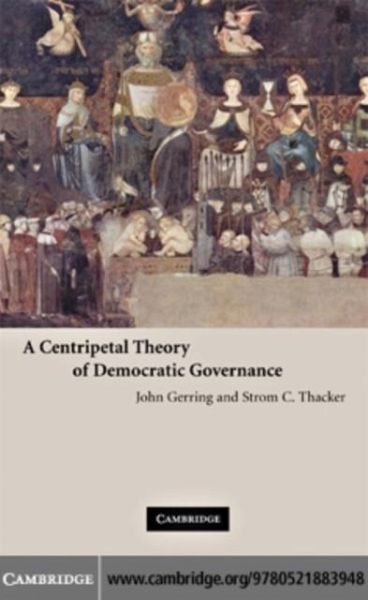
Centripetal Theory of Democratic Governance (eBook, PDF)

PAYBACK Punkte
11 °P sammeln!
This book outlines the importance of political institutions in achieving good governance within a democratic polity and sets forth an argument to explore what sorts of institutions do the job best. By focusing on 'centripetal institutions', which maximize both representation and authority by bringing political energy and actors toward the centre of a polity, the authors set forth a relatively novel theory of democratic governance, applicable to all political settings in which multi-party competition obtains. Basing their theory on national-level political institutions, the authors argue that t...
This book outlines the importance of political institutions in achieving good governance within a democratic polity and sets forth an argument to explore what sorts of institutions do the job best. By focusing on 'centripetal institutions', which maximize both representation and authority by bringing political energy and actors toward the centre of a polity, the authors set forth a relatively novel theory of democratic governance, applicable to all political settings in which multi-party competition obtains. Basing their theory on national-level political institutions, the authors argue that there are three types of political institutions that are fundamental in securing a centripetal style of democratic governance: unitary (rather than federal) sovereignty, a parliamentary (rather than presidential) executive, and a closed-list PR electoral system (rather than a single-member district or preferential-vote system).
Dieser Download kann aus rechtlichen Gründen nur mit Rechnungsadresse in A, B, BG, CY, CZ, D, DK, EW, E, FIN, F, GR, HR, H, IRL, I, LT, L, LR, M, NL, PL, P, R, S, SLO, SK ausgeliefert werden.













